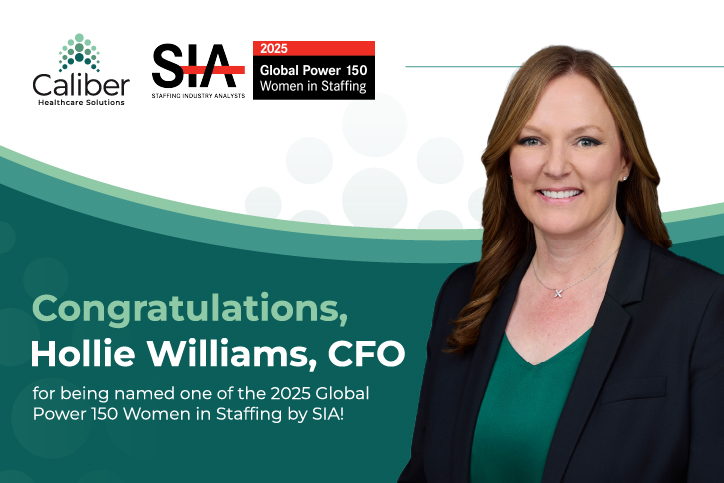
By 2030, 20% of Americans will be 65 or older, significantly increasing the demand for healthcare services, particularly in gastroenterology. Older adults generally require more GI healthcare, including essential procedures like colon cancer screening. This demographic shift exacerbates the existing physician shortage, especially in primary care and specialties like gastroenterology.
The shortage of gastroenterologists is driven by an aging population with a higher prevalence of GI disorders and a relatively low number of new specialists entering the field. This shortage poses serious challenges to patient care and the efficiency of healthcare systems. Addressing this issue requires a multi-faceted approach, including promoting the field to new medical graduates, optimizing the use of advanced practice providers, and improving the allocation of existing physician resources.
Efforts to bridge this gap are crucial not only for maintaining high-quality patient care but also for ensuring timely and effective cancer screenings, such as those for colon cancer, which are vital for early detection and treatment. By leveraging temporary staffing solutions like locum tenens providers, the healthcare industry can better manage the growing needs of an aging population and improve overall healthcare outcomes.
Our physician shortage is dire; the Association of American Medical Colleges reports an overall shortage between 37,800 and 124,000 physicians by 2034. And gastroenterology is one of the specialties with the highest predicted deficit. This rise in demand stems from several factors, including an aging population and a corresponding increase in gastrointestinal conditions like colorectal cancer. Moreover, advancements in healthcare allow for more specialized and effective treatments, further amplifying the need for specialists in gastroenterology.
Another driving force includes the implementation of nationwide screening programs for colorectal cancer. These screening efforts have successfully raised awareness and increased the detection of early-stage diseases, necessitating more professionals to continue providing timely care. Additionally, the prevalence of obesity and food sensitivities require gastrointestinal treatment across demographics.
Amid these growing needs, addressing the physician shortage becomes paramount to ensuring patient care continuity and system efficiency. And as a locum staffing agency, our purpose is to bridge these gaps across the United States.
By next year, gastroenterology could face a shortage of more than 1,600 physicians. This stems from an imbalance between the retirements of seasoned physicians and the entry of new ones from graduate medical education programs.
With an aging population at increased risk for gastrointestinal diseases, the demand for specialized care is spiking at a rate that outpaces the supply of qualified Gastroenterologists. In fact, we're already feeling the pinch with longer waits for appointments and procedures like colorectal cancer screenings and gastrointestinal endoscopy.
The gastroenterologist shortage has stark implications for patient care, notably in delays for crucial screenings like those for colorectal cancer, potentially leading to late diagnoses and decreased survival rates. The strain on existing Gastroenterologists can also jeopardize the quality of care, with physicians facing increased workloads and the risk of burnout, affecting patient outcomes and provider satisfaction alike.
Addressing the shortage is not only about sustaining healthcare quality but also about ensuring the healthcare system's resilience against the growing patient demand and advancing medical treatments. So, what's the solution?
Gastroenterology locum providers serve as a critical stopgap, offering healthcare facilities the flexibility to maintain patient care services without interruption. By stepping in on a temporary or as-needed basis, Gastroenterologists can address immediate staffing needs, reduce wait times for procedures, and alleviate the workload for permanent staff, thus minimizing burnouts.
This flexibility not only benefits healthcare providers but also ensures patients receive timely and quality care, addressing one of the most critical aspects of the Gastroenterologist shortage. Locum physicians are instrumental in maintaining service continuity during peaks of demand or while searching for permanent gastroenterology candidates.
By seamlessly integrating gastroenterology locums into their staffing models, healthcare facilities can better manage fluctuating patient loads, ensuring timely and even lifesaving screenings and procedures.
Healthcare staffing agencies like Caliber become invaluable partners in addressing the Gastroenterologist shortage. Leveraging extensive networks and robust recruitment strategies, we can work with facilities to quickly fill staffing gaps with qualified locum or locum-to-perm Gastroenterologists.
Since we have a dedicated GI team, we understand the unique requirements and preferences of gastroenterology practices, enabling our recruiters to efficiently match facilities with the right candidates. This synergy streamlines the recruitment process and ensures each Gastroenterologist is well-suited to the specific needs and culture of the healthcare facility.
We operate a little differently than most staffing agencies due to our provider-centric approach. We take both the professional expertise and career aspirations of our providers into consideration and we use that information to consider the operational needs of healthcare facilities. Our mission is to facilitate placements that ensure professionally rewarding and financially satisfying opportunities for Gastroenterologists, which ultimately leads to better patient outcomes.
Caliber offers total support beyond placement. First, we ensure our gastroenterology locum providers have access to roles that align with their lifestyle preferences and professional development needs. Then, we handle the nuances of licensing and credentialing (because your expertise is in patient care, not paperwork!). And finally, we ensure the opportunity meets your needs and work together to identify more assignments that help you reach your financial and career goals.
We value the notion that fulfilled healthcare providers deliver superior patient care. Hence, our team dedicates itself to creating customized pathways that cater to individual motivations, promoting job satisfaction, and longevity in the field of gastroenterology.
To combat the Gastroenterologist shortage effectively, we believe in the following strategies to attract and retain talent.
Creating an environment where Gastroenterologists feel professionally fulfilled and adequately compensated is key. Facilities can achieve this by ensuring competitive salaries, offering incentives for specialized procedures, and providing platforms for continuous learning and professional growth. We achieve this by personalized career advising and meticulous assignment selection.
Flexibility is a significant attractor for many in the medical profession. Locum tenens opportunities cater to this preference, offering Gastroenterologists the ability to work in diverse settings, manage their schedules, and achieve a desirable work-life balance.
Investing in employees enhances their job satisfaction. That's a fact in any profession. Tailored mentorship programs, leadership opportunities, and continuing education resources are a few examples of how facilities can provide value beyond the clinical role, ensuring a committed and engaged physician workforce.
And with a locum career, it's even easier to achieve these qualities. By exploring different healthcare facilities with varied procedures and patient populations, gastroenterology locums providers enhance their skillsets, learn different EMRs, and practice with varying degrees of support teams and resources. Not to mention, with the help of a staffing agency, you always have a career advocate.
Gastroenterology is a lucrative specialty facing significant staffing challenges. Technological innovations and the continuous advancement of treatment methods offer new horizons for both patient care and provider practices. The Gastroenterologist shortage won't be cured overnight, but there are a few strategies to help mitigate its effects.
Technological advancements in diagnostic tools and treatment methodologies are transforming gastroenterology. Healthcare facilities and providers must remain agile, adopting and adapting to innovations that can enhance efficiency and outcomes in patient care, creating more timely diagnoses and freeing up time in physician schedules.
Ongoing training and education play a crucial role in retaining talented Gastroenterologists. Facilities that invest in continuous professional development opportunities demonstrate a commitment to their providers' career progression, which in turn, fosters loyalty and long-term engagement. Gastroenterology locum opportunities also provide the chance to experiment with different environments and procedures, which helps providers develop new skillsets.
As a staffing agency, we believe in strategically utilizing the existing physician and APP workforce. Advanced Practice Provider use has increased and incorporating them in practice environments more fully can expand patient access and free up Gastroenterologists for more specialized appointments and procedures. Similarly, locum Gastroenterologists can provide short-term relief for burnout and connect rural facilities with specialized care they may not otherwise get.
The partnership between healthcare facilities, staffing agencies like Caliber, and dedicated gastroenterology professionals are critical to address the continuity of care amid the physician shortage. Together, we can expand healthcare access and improve patient access.
Whether you're a facility in need of staffing solutions or hoping to explore locum opportunities, let's connect.
.png)
Posted on
February 3, 2026
Caliber Healthcare Solutions, a leading healthcare staffing agency, announced today that it has achieved a rare and significant milestone by winning ClearlyRated’s 2026 Best of Staffing® Client, Talent, and Employee Awards for Service Excellence. This marks the first time in company history that Caliber has earned the Employee Satisfaction Award, completing a first-ever, three-award sweep that reflects excellence across every stakeholder group the firm serves.

Posted on
October 9, 2025
Caliber is proud to announce that our Chief Financial Officer, Hollie Williams, has been named to the Staffing Industry Analysts (SIA) 2025 Global Power 150 Women in Staffing list. This prestigious recognition honors women who are shaping the future of the staffing industry through innovation, leadership, and measurable impact.

Posted on
August 14, 2025
The OB/GYN workforce is at a pivotal moment. Demand is growing, especially in underserved regions. Meanwhile, retirements, burnout, and legislative pressure continue to shrink the supply of practicing physicians.
.png)
Posted on
February 3, 2026
Caliber Healthcare Solutions, a leading healthcare staffing agency, announced today that it has achieved a rare and significant milestone by winning ClearlyRated’s 2026 Best of Staffing® Client, Talent, and Employee Awards for Service Excellence. This marks the first time in company history that Caliber has earned the Employee Satisfaction Award, completing a first-ever, three-award sweep that reflects excellence across every stakeholder group the firm serves.
.png)
Posted on
January 18, 2026
During National CRNA Week 2026 (January 18–24), we recognize and celebrate CRNAs for their critical role in modern healthcare and their lasting impact on patient outcomes nationwide.

Posted on
October 9, 2025
Caliber is proud to announce that our Chief Financial Officer, Hollie Williams, has been named to the Staffing Industry Analysts (SIA) 2025 Global Power 150 Women in Staffing list. This prestigious recognition honors women who are shaping the future of the staffing industry through innovation, leadership, and measurable impact.

Posted on
July 30, 2024
With a projected 3% job growth in gastroenterology by 2032 and over half of currently practicing Gastroenterologists aged 55 or older, the field is on the brink of significant changes.

Posted on
July 29, 2024
Gastroenterology presents both challenges and opportunities for healthcare providers. The specialty is experiencing significant advancements in technology, increased patient demand, and evolving healthcare delivery models.

Posted on
July 24, 2024
Perhaps you’ve noticed colleagues who take a month off here and there or heard rumors about spending less time on paperwork and more time with patients. If you're interested in becoming a locum physician, you've landed on the right article.
.png)
Posted on
February 3, 2026
Caliber Healthcare Solutions, a leading healthcare staffing agency, announced today that it has achieved a rare and significant milestone by winning ClearlyRated’s 2026 Best of Staffing® Client, Talent, and Employee Awards for Service Excellence. This marks the first time in company history that Caliber has earned the Employee Satisfaction Award, completing a first-ever, three-award sweep that reflects excellence across every stakeholder group the firm serves.
.png)
Posted on
January 18, 2026
During National CRNA Week 2026 (January 18–24), we recognize and celebrate CRNAs for their critical role in modern healthcare and their lasting impact on patient outcomes nationwide.

Posted on
August 14, 2025
The OB/GYN workforce is at a pivotal moment. Demand is growing, especially in underserved regions. Meanwhile, retirements, burnout, and legislative pressure continue to shrink the supply of practicing physicians.